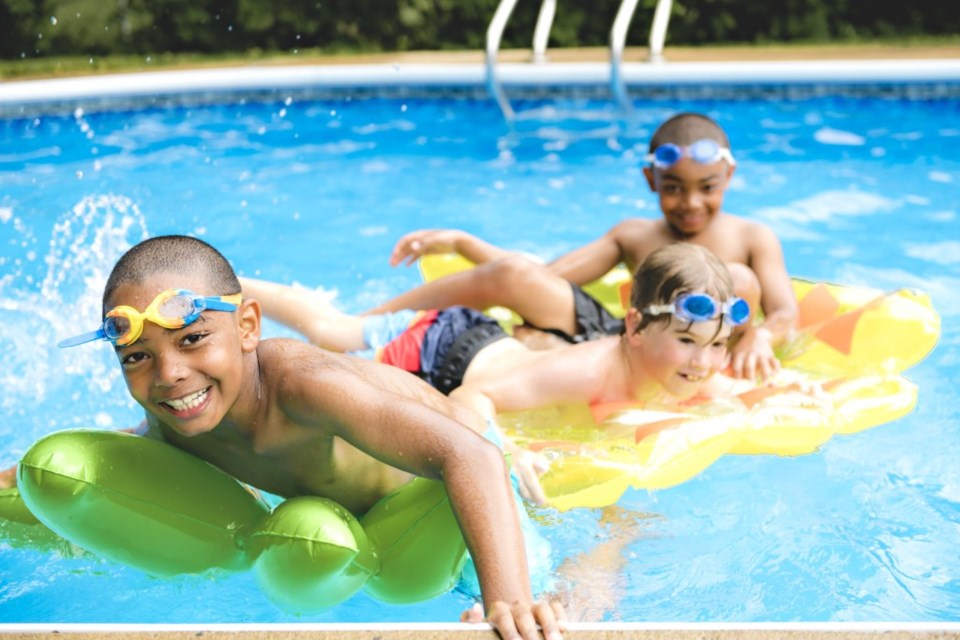Under the sun, in the water, or exploring the more wild and rugged terrain of Texas, summer fun can lead to injury if you aren’t watchful and prepared. Here are some summer safety tips on how to protect yourself and your family this summer (with a little help from the professionals at BSWH), on how to keep cool, stay safe, and have fun in the sun!

Summer Safety: Under The Sun
“Texas” is often synonymous with “heat,” even outside of summer. But as soon as school is out, Texas sun proves that everything truly is bigger in this state: including the summertime temperature.
Justin Cherian, DO, Emergency Medicine Physician on the medical staff of Baylor Scott & White Medical Center – Centennial, cautions that the risk of heat exhaustion is prominent and worth watching out for. This is especially true for the elderly and infants as they are particularly at risk for heat exhaustion.
“The best thing you can do is avoid going out at peak temperature times,” Dr. Cherian says. “If you enjoy exercising outdoors, try to do so early in the morning or later in the evenings. If you do have to go outside, make sure you stay hydrated with water or electrolyte-containing drinks. Wear protective clothing, such as hats.”
William McNamara, MD, FACS, head and neck cancer surgeon on the Baylor Scott & White Medical Center – Plano medical staff, emphasizes the importance of sunscreen in warding off the potentially harmful long-term effects of fun in the sun.
“Regardless of skin type, wearing sunscreen is an important step in preventing skin cancer,” Dr. McNamara says. “Studies show that regular use of sunscreen can reduce the risk of developing skin cancers such as melanoma by nearly 50%.”
The American Academy of Dermatology recommends using a broad spectrum sunscreen that protects against both UVA and UVB rays that is at least SPF-30 and is water resistant. Remember the sun’s rays are strongest between 10:00 am and 2:00 pm, so try to seek shade and reapply sunscreen often if you’re outside during this time. Always wear sunscreen
when spending any length of time outside, even in the shade.
Summer Safety: In The Water
Water has an irresistible pull on people of all ages during the summer months. Whether it’s swimming or boating, there are perils to be watchful of while you’re having fun in the water.
John F. Marcucci, MD, FACEP, MBA, Emergency Medicine Physician on the medical staff at Baylor Scott & White Medical Center – Plano, often reminds patients that drowning is the third leading cause of unintentional death worldwide, and (according to the CDC) the leading cause of unintentional death among children 1-4 years old.
“Never leave children unattended around a pool or any body of water and make sure they’re always wearing floatation devices,” Dr. Marcucci urges. “Adults should also never swim alone. While boating or near open water, always make sure everyone has a life jacket. The US Coast Guard reports that over 80% of drowning victims while boating are not wearing a life jacket.”
Dr. Marcucci also notes that diving is the fourth leading cause of paralyzing spinal cord injuries, and cautions patients likewise as they plan their carefree summer days.
“Never dive into shallow water,” Dr. Marcucci says. “Most injuries occur while diving in backyard pools but serious injuries can and do occur while diving into lakes or other bodies of water with sandy bottoms. Visualizing water depth can also be very deceiving, so avoid diving head-first into water.”
And of course, take care at all times and during all activities when alcohol is involved… especially around water.
“As with driving a car, you shouldn’t go swimming or drive a boat when drinking alcohol,” Dr. Marcucci says. “Alcohol is the leading factor in fatal boating accidents in the United States.”
Summer Safety: In The Wild
Hiking trails and exploring the great outdoors are perfect summertime activities that have been a mainstay of many idyllic childhood summers over the years. But adventurous Texans of every age must remember that we share the terrain with snakes who won’t shy away from defending themselves with a potentially deadly bite.
How can you avoid getting bitten? Liz Fagan, MD, Emergency Medicine Physician on the medical staff of Baylor Scott & White Medical Center - McKinney, explains how you can more easily avoid snakebites by being aware of your surroundings when you are outside.
“Wear boots and long pants when walking in areas known to have snakes,” Dr. Fagan explains. “If you see a snake, go around it; don’t pick it up or play with it. Snakes are drawn to areas of warmth when it is cool (warm rocks or sidewalks) and shady areas when it is hot (under bushes and piles of leaves). Look around before you step/sit down outside and especially before putting your hands down into shady areas.”
So what do you do if you or someone you love has been bitten by a snake? Here are the basic steps:
- Stay calm and move away from the snake and its environment.
- Hold the bitten body part at the level of your heart.
- Wash the wound gently.
- Remove anything that could become constricting on the bitten extremity.
- Seek medical attention promptly by either calling 9-1-1 or the Texas Poison Center (1-800-222-1222) for information about which hospitals in your area have anti-venom.
You can still have a fun summer while being safe, watchful and healthy. Now that you’re educated and well-equipped with essential summer safety tips, get outside and enjoy it!
For more information, visit BSWHealth.com/Emergency.
Looking for some Plano pools to help you beat the heat? Here you go!



